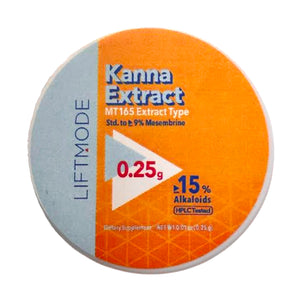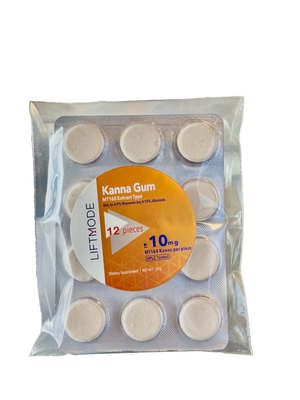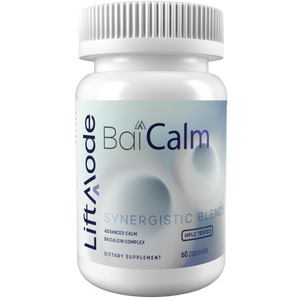Background into Agmatine Benefits
Agmatine ((4-aminobutyl)guanidine) is a newly understood amino acid derivative, synthesized in the brain from L-Arginine, and used as a neurotransmitter. Agmatine is a product of the L-Citrulline synthesis pathway. It is used in a number of physiological processes, especially as a neuromodulator and neuroprotective compound.[1] It also has a number of newly discovered potential benefits, which is why so many people are talking about Agmatine Sulphate supplements. Agmatine Sulphate has several important potential benefits when used responsibly as a dietary supplement. These include several benefits for protecting the brain and supporting healthy cognition – with research especially focussing on its potential to be used as a neuroprotective compound. People online often search for Agmatine and bodybuilding, or sometimes for the precursor, L-Arginine and bodybuilding. This supplement may have some benefits for fitness and in supporting a healthy circulatory system.1. Agmatine for Stress Relief & Mood
2. Agmatine for Cognitive Health
People online are talking about Agmatine's ability to help support cognition and memory. This newly researched compound acts as a neurotransmitter and positively influences parts of the brain that are associated with cognition, memory, and learning. In several studies, researchers have found that this supplement is stored in the hippocampus, an area of the brain associated with learning and that it is released when new tasks are learned.[6] This is one of the reasons why it is often referred to as a top cognitive performance supplement. It is also found in the stratum radiatum and both prefrontal and perirhinal cortices – areas of the brain that are also associated with memory and learning.[7] Another important top Agamtine benefit is its ability to work as a neuromodulator – meaning that it helps to maintain healthy levels of neurotransmitters in the brain.[8] This helps to support cognitive performance and also helps to support a healthy brain. Finally, Agmatine is said to be neuroprotective – helping to protect the brain from toxins and stress. [9]3. Agmatine Benefits for Fitness Performance
Agmatine is often taken by people who are looking to improve their fitness performance, as a supplement for energy and to improve physical stamina or endurance. There is still room for further research focussing on this supplement’s ability to improve athletic performance in humans. However, some research into its effects definitely looks promising. Firstly, studies indicate that Agmatine can be used to support a healthy circulatory system, which is important for fitness and exercise. Agmatine is able to regulate nitric oxide production – a naturally-produced compound that causes blood vessels to expand, lowering blood pressure and allowing for improved blood flow through the body.[10] Specifically, Agmatine is able to activate the α2A adrenergic receptor, which is responsible for triggering the synthesis of nitric oxide.[11] Secondly, animal studies have indicated that blood glucose levels tend to drop after using an Agmatine supplement. Researchers have suggested that this is caused by this supplement’s interactions with imidazoline receptors. Basically, these receptors produce endorphins (natural ‘feel-good’ compounds, which allow more glucose to be deposited into skeletal muscle cells, providing an increase in physical energy and reducing blood glucose levels.[12]Agmatine Sulphate Recommended Usage
Agmatine is most often taken in a sulphate form, which allows for better storage and absorption/metabolism. The recommended serving size is 600 – 1200 mg, taken once to twice daily. There is a low level of research that has been conducted on human participants, so it is recommended not to exceed the serving suggestion. One human study used a daily serving size of no more than 2’600 mg and focused on potential Agmatine benefits for pain relief. The researchers recorded few side effects apart from mild nausea and some diarrhoea, which were more pronounced at larger serving sizes.[13] If you have any underlying medical conditions or are taking any medication, please speak to your doctor before using Agmatine supplements. There is insufficient information about safety for pregnant and breastfeeding women – please speak to your doctor first if you’d like to use this supplement.Conclusion: Agmatine Benefits for Health and Mood
In summary, the top three most talked about Agmatine benefits include an ability to help reduce stress and to promote a healthy mood; to support cognition and a healthy brain; and potentially to help promote fitness and exercise performance. Agmatine reviews on the internet – written by people who have used this supplement – are another great way to learn about this supplement’s potential benefits. Since there has not been that much research focussing on benefits in humans taking oral supplements, online reviews are a great place to get a bit more information. Websites like Reddit and Erowid.org often have some good Agmatine reviews. [caption id=""attachment_2857"" align=""alignright"" width=""799""]Medical Disclaimer
Not intended to treat, diagnose, or cure any disease or ailment. Please read and fully understand potential adverse effects before using this product. These statements have not been reviewed by the FDA and are not written by a medical professional. Please consult your doctor before using any supplements, especially if you have any medical conditions.
Tristan
B.Sc. in Molecular Biology and Biochemistry Researched & written by Tristan and verified by the Liftmode.com Research Team




